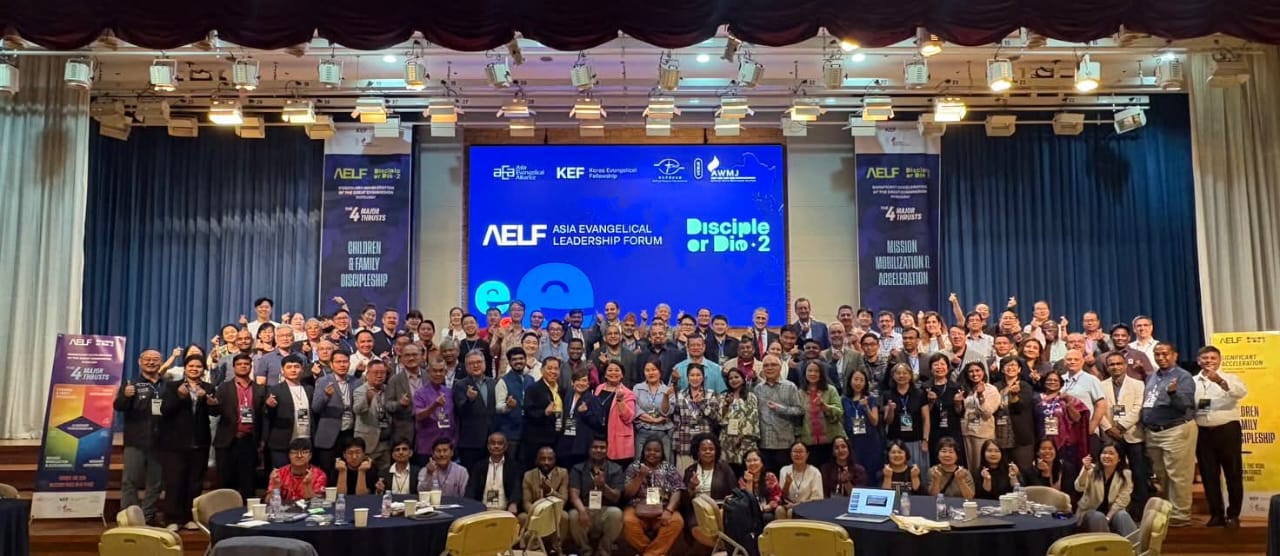Last month, I led a delegation of evangelical leaders to the Holy Land: Israel and the Palestinian Territories (PT), and I want to share with you impressions and insights from our trip that will inform your prayers for our brothers and sisters in Christ in that region.
Those of you who have visited the Holy Land know that in many ways it can be described as a land of borders: There are jurisdictional borders between the nation of Israel and the Palestinian Territories. There are physical borders; whether the Jordan River separating Israel from Jordan or the physical wall separating Israel and Jewish settlements from the Palestinian Territories and separating those living in part of the Palestinian Territories from those living in other areas.
Walls separating Israel and Jewish settlements from the Palestinian Territories.
There are cultural and ethnic borders between Jews and Arabs. There are religious borders between Jews, Christians and Muslims. There are borders of prejudice between Palestinian Christians and Muslims, between Israeli Jews and Arabs, between new immigrants and long-time residents within Israel. Borders, borders, borders… and also barriers; barriers to evangelistic witness, barriers to church growth, barriers to fellowship.
And yet, believers in Christ are reaching across these borders and overcoming barriers in the spirit of Ephesians that says “For [Christ] himself is our peace, who has made the two groups one and has destroyed the barrier, the dividing wall of hostility.” They live out the Gospel in an area in which it is difficult to follow Christ.
The visit of our delegation had two main purposes: The first was to seek official recognition for evangelical churches from the Israeli and Palestinian governments. Both recognize churches from a list of denominations established during the Ottoman Empire, passed on to the British and then to the Israelis, but this list does not include evangelicals.
Officials from both governments admit the validity of the request but are very reluctant to challenge the status quo. Calling people to become Christ followers is illegal in Israel and Palestine under certain circumstances. Both governments once more assured the delegation that “they were working on it.” Please pray that the respective governments will follow up on their promises.
The second goal was to encourage the Evangelical Alliances in the area—The Israeli Evangelical Alliance and the Council of Local Evangelical Churches in the Holy Land (CLECHL: Palestinian Territories). We also met leaders of a network of Arab-Israeli pastors in Galilee.
With leaders of the Synod of Evangelical Churches in Israel.
Yes, we believe that they were encouraged by our visit; and we know for sure that we were encouraged. They are reaching across the borders. They are seeing people coming to know Jesus from non-Christian backgrounds.
Arab Israeli’s are going to Jordan to serve Syrian refugees. Churches of multiple denominations in Northern Israel are holding youth rallies attended by hundreds of young people who see strength and encouragement in numbers. Evangelicals in Israel are reaching out to new Jewish immigrants—helping them adjust to life in Israel and telling them of Jesus.
We visited a ministry in the West Bank that provides an indoor park where local children can play safely on wonderful equipment and learn athletic skills while mom and dad drink coffee on the sidelines—often in conversation with Christ followers. Local youth are being served by Christian day-care, pre-schools as well as primary, secondary and post-secondary schools. Often the love demonstrated by believing teachers brings them to Jesus. The CLECHL has seen their numbers double in the past decade. God is at work!
With leaders of the Council of Local Evangelical Churches in the Holy Land.
Yet, when asked what message these leaders wanted us to communicate to the larger body of evangelicals globally, their primary call was, “Pray for us.” Their comment: “we are serving in a spiritually dark environment.” Expat workers have needed to leave due to family, health and visa problems. Some talked of years of bureaucratic red tape when seeking to get basic building permits; of having their land expropriated by government with no compensation.
Persecution is real, causing one pastor to state, “we are afraid to witness to our neighbors; pray that we have courage.” Another leader shared, “It’s hard to love someone who has been your enemy for years, whose father was your father’s enemy and whose grandfather was your grandfather’s enemy. We want to love them, but it’s hard—pray for us.” These Christ followers total some 25-30,000 individuals in an area with a total population of over 10 million. Another simply said, “Don’t forget us.”
Those of us who visited them won’t forget them. Their lives are living examples of the power of the gospel to bridge barriers—to overcome prejudice and to replace hate with love and to forgive. They are our brothers and sisters. God has great plans for the people of this region—plans to call out a people for himself from all sectors of this divided land.
Please join me in praying for them and with them, as the Lord taught us: ‘Father, may Thy will be done on earth as it is in Heaven.’
Sincerely,
![]()
Bishop Efraim M. Tendero, D.D., D.L.
Secretary General / CEO
World Evangelical Alliance








Stay Connected